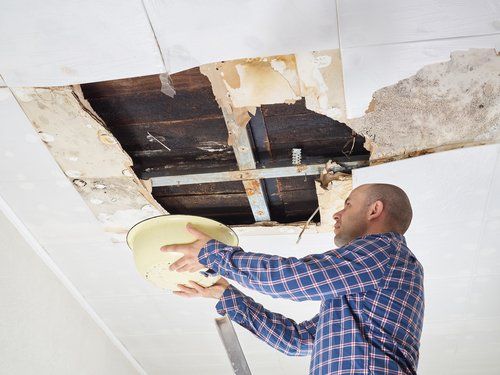Hidden defects house
What does the law say?
Pursuant to the law (Section 7:17 of the Dutch Civil Code), the house delivered must have those properties that the buyer could expect on the basis of the agreement. That is the so-called 'conformity requirement'.
But what can a buyer expect from an existing house?
The law states that a buyer can in any case expect that the house is suitable for 'normal use'. This means that the house can be occupied as a house with some durability in a usual way (severe subsidence, leakages, or unsafe situations are examples where a house can not be used normally).
If a house is delivered that is not suitable for normal use, the seller is in principle liable for the defects that prevent this normal use. However, the law makes an exception for defects that a buyer knew or could have known. The latter indicates the so-called 'duty of investigation' of the buyer. The buyer is expected to carefully examine the house or have it examined before he closes the purchase. This obligation to investigate weighs heavier as the house to be bought is older.
For that matter, the seller can not blame the buyer for not having fulfilled his obligation to investigate if he, as a seller, was aware of the defect, but did not inform the buyer about it. The duty of notification of the seller in fact weighs heavier than the obligation to investigate.
Purchase agreement differs from the law
The legal rules on defects are not mandatory. Buyer and seller may deviate from the statutory rules in their purchase agreement and this usually also applies. In many situations of buying or selling existing homes standard model contracts of the NVM or other broker organization are used. On the basis of these standard contracts, all defects to the delivered home are in principle for the account of the buyer, whereby an exception is made for defects that can prevent normal use of the home. The seller guarantees in these standard contracts the normal use of the property. This guarantee gives the buyer a strong position, because the buyer does not have to prove that the seller was aware of the defect. Whether or not the seller was aware of it does not really matter. The buyer shall only make it plausible that the defect was hidden at the inspection and that the defect is so serious that the defect prevents the normal use of the dwelling.
Exceptions to the warranty
As stated above, most purchase agreements contain the standard warranty whereby the seller guarantees the normal use. As mentioned earlier, buyer may also expect 'normal use' on the grounds of the law.
Please note: on the normal use guarantee mentioned, an exception is regularly made in the purchase agreement by specific extra clauses. The most important clauses are the so-called 'age clause' ( in Dutch: óuderdomsclausule) and the 'not self-occupational clause' ( in Dutch: niet-bewoningsclausule ). The age clause means that the parties agree that the seller is not liable for certain defects in connection with the advanced age of the house (for example defects in roof, sewerage, etc.). The non-self-occupational clause means that sellers claim not to have lived in the house themselves and therefore are not aware of any defects and that they are not liable for defects in connection therewith.
Also other defects
As stated above, a seller's liability is often required that the defect is so serious that the normal use of the home can be prevented. However, in some cases seller can also be liable for less serious defects. This is particularly the case if the vendor has promised certain qualities of the delivered goods or has breached his duty to disclose (the vendor was aware of the defect, but has kept silent about it) or worse, if he has glossed over the defect (examples: before selling overpainting). rotten window frames, placing a wall cupboard for a moldy wall).
Conclusion
In general, the seller of a house can be held liable if:
-the defect was not visible or otherwise known to the buyer;
-the defect prevents normal use or a guaranteed property is not present, or seller has breached his duty to disclose in case of a less serious defect;
- liability of seller is not excluded in the purchase contract
Advice in your specific case:
Above is an outline of the legal rules for hidden defects in the sale of an existing house. However, each individual case deserves its specific assessment. Call 020 - 6890 863
or email
our specialists to have your case reviewed.
Sample letter
If you are the buyer of a home with a defect and you want to hold the seller liable, order our Dutch sample letter
